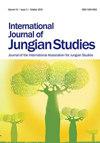Recognition and pathos
Q4 Psychology
引用次数: 2
Abstract
Throughout this essay I offer an adumbrated critique of recognition theory through a psychoanalytic sensibility. Contemporary recognition theory relies on an overly optimistic and intellectualized view of social relations that fails to adequately consider pathological processes inherent in human motivation, particularly those that are unconsciously mediated by collective prejudice and dysrecognition. In revisiting the Hegelian struggle for recognition, much of social reality today is mired in a collective pathos that prevents optimal mutual recognition among social collectives. Not all people are disposed, let alone capable, of recognizing the Other. We may have to contend that, in the end, recognition means tolerance of difference and not merely acceptance of one other, which could still bring about a pragmatic co-existence even if people cannot recognize each other as equals. This is largely due, I suggest, to the ontology of prejudice, attachment deficits, and the failure to adopt empathy toward alterity.认可和同情
在这篇文章中,我通过精神分析感性提供了对认知理论的批判。当代认知理论依赖于一种过于乐观和理智的社会关系观,未能充分考虑人类动机固有的病理过程,特别是那些由集体偏见和认知障碍无意识地介导的病理过程。在重新审视黑格尔的认可斗争时,今天的许多社会现实都陷入了一种集体的悲情之中,这种悲情阻碍了社会集体之间的最佳相互认可。不是所有的人都愿意,更不用说有能力去认识他者了。我们可能不得不说,最终,承认意味着容忍差异,而不仅仅是接受彼此,即使人们不能平等地承认彼此,这仍然可以带来务实的共存。我认为,这在很大程度上是由于偏见的本体论、依恋缺陷以及未能对另类采取同理心。
本文章由计算机程序翻译,如有差异,请以英文原文为准。
求助全文
约1分钟内获得全文
求助全文
来源期刊

International Journal of Jungian Studies
Psychology-Applied Psychology
CiteScore
1.10
自引率
0.00%
发文量
10
 求助内容:
求助内容: 应助结果提醒方式:
应助结果提醒方式:


